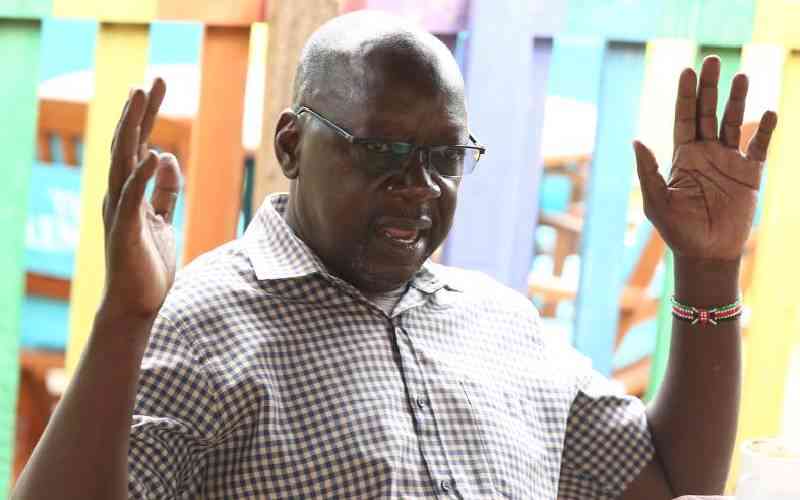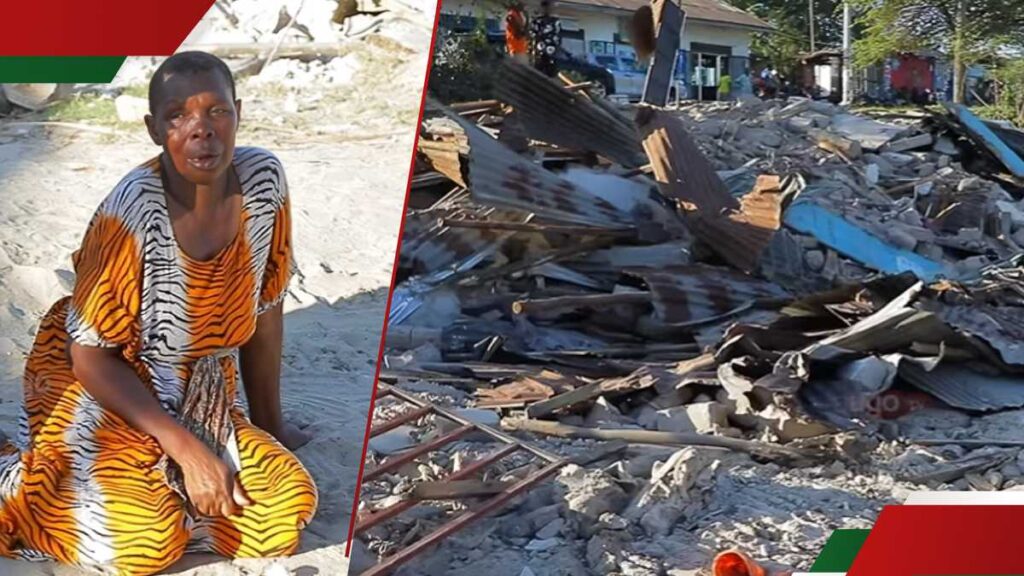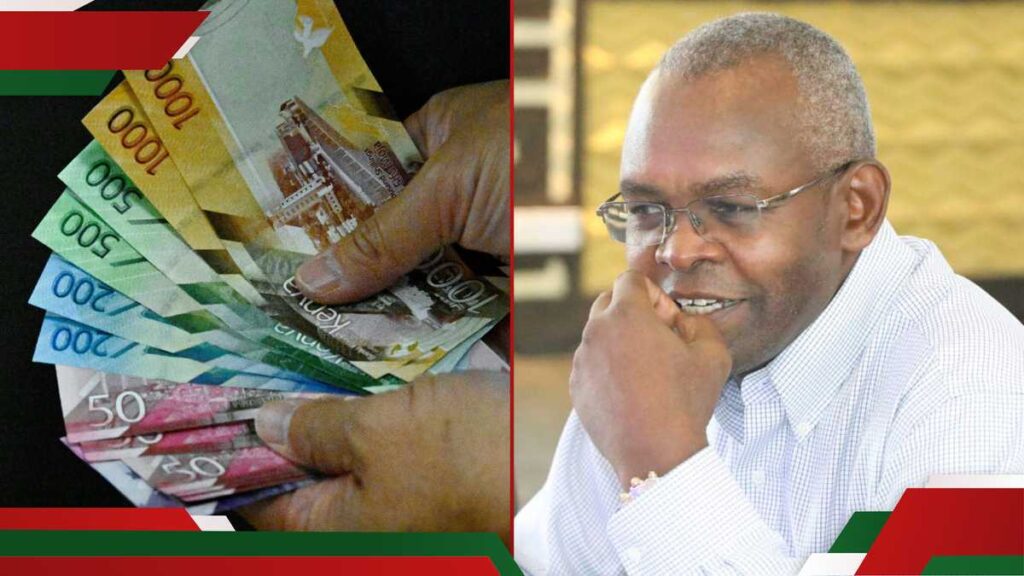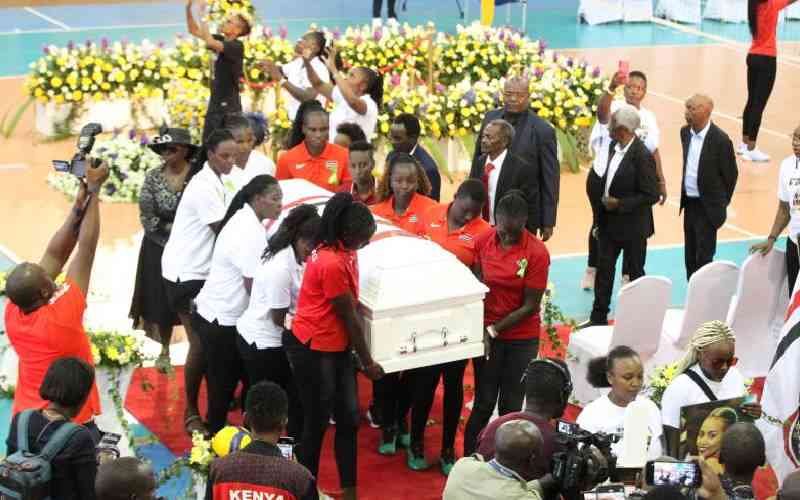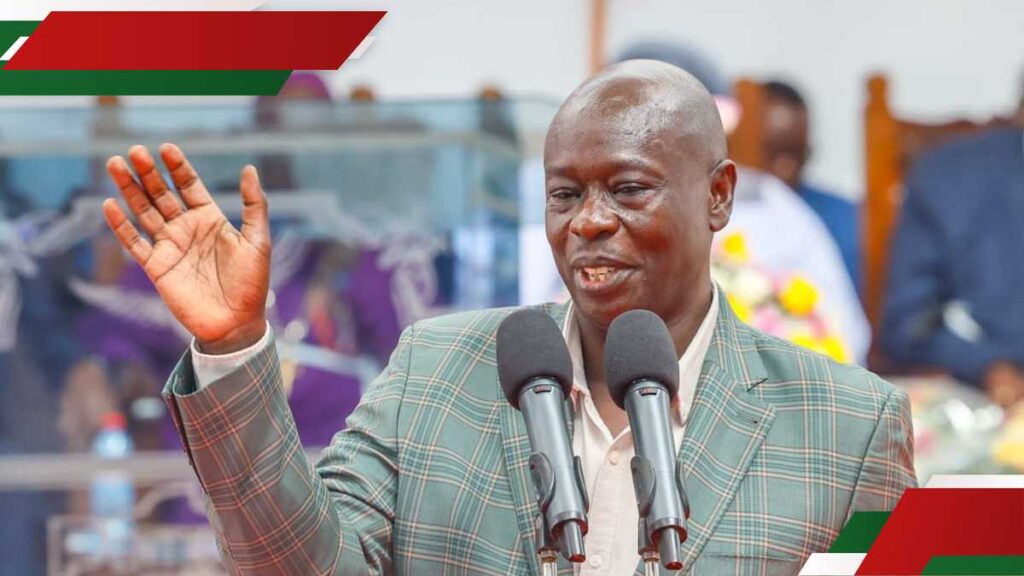The Court of Appeal has upheld the acquittal of former Principal Secretary for Planning, Peter Oganga Mangiti, and 22 others in a Sh47.6 million graft case linked to the National Youth Service (NYS) Season 1 scandal.
Justices Jamila Mohammed, Francis Tuiyott, and Paul Nyamweya delivered the unanimous decision, overturning a 2022 High Court judgment that had revived corruption charges against Mangiti and his co-accused.
The three-judge bench cited a lack of sufficient evidence and misapplication of legal standards by the High Court.
“We accordingly allow the consolidated appeals herein, and hereby set aside the judgment of the High Court delivered on July 28, 2022, in its entirety,” read the ruling, restating the 2018 decision by the Milimani Chief Magistrate’s Court that had acquitted all the accused.
The case stemmed from allegations of irregular procurement and misappropriation of public funds amounting to Sh47.6 million, paid to Blue Star Enterprises for the supply of automotive training materials to NYS.
The accused included former NYS Deputy Director-General Adan Harakhe, supply chain officers, members of the Ministerial Tender Committee, and directors of Blue Star Enterprises, the company awarded the controversial tender.
The prosecution charged the former PS and his 22 co-accused persons with multiple counts, including conspiracy to commit economic crimes, abuse of office, willful failure to comply with procurement laws, and fraudulent acquisition of public property.
The trial court acquitted them in 2018, stating the prosecution had failed to establish a prima facie case.
However, the Director of Public Prosecutions (DPP) appealed to the High Court, which in 2022 directed that the accused be put on their defense.
Aggrieved by the High Court decision, Mangiti and his co-accused lodged an appeal contesting the decision.
In their detailed judgment, the appellate judges faulted the High Court for misinterpreting the legal threshold for establishing a prima facie case.
The bench emphasized that the burden of proof remains squarely on the prosecution, especially at the “case to answer” stage.
“At this stage, the burden and standard of proof wholly rests on the prosecution, and any gaps in the evidence… should be construed in the accused person’s favour as an indication that no prima facie case has been made out,” they ruled.
The judges added that the High Court had erroneously relied on Section 111 of the Evidence Act to shift the burden of proof onto the accused, an error, they noted, as the section is inapplicable at the prima facie stage.
Stay informed. Subscribe to our newsletter
They also pointed out that the High Court ignored conflicting testimonies from key prosecution witnesses, including the Chief Supply Chain Officer and two others, whose evidence exonerated the accused.
The prosecution had presented testimony from 16 witnesses, including forensic investigators from the Ethics and Anti-Corruption Commission (EACC), procurement officials, and NYS staff.
According to first witnesses in the case, the procurement of training materials was initiated by the NYS user department and followed internal protocols, including restricted tendering though Blue Star Enterprises was not on the Ministry’s pre-qualified suppliers list.
A Deputy Director at NYS admitted the procurement was not included in the 2014/2015 Annual Procurement Plan, calling its legality into question.
The last prosecution witness investigating officer Mark Ndiema who is also a forensic investigator attached to EACC informed the trial court that Ministry of Devolution and Planning tender committee erred in granting authority for use of restricted tendering of training materials for Automotive Engineering faculty in NYS.
“The National Youth Service did not give proper justification or explanation for the use of restricted tendering, and the Ministerial tender committee did not seek proper reasons before approving use of the said tender method,” Ndiema stated during his testimony in court
The officer informed the court that Blue Star Enterprise is as suspect firm believed to have been set up to receive the Sh 47 million kickback at its Paramount Universal Bank Ltd account held at Koinange Branch, Nairobi county.
He said that the accused persons requested for authority to use restricted tendering as an alternative procurement method to procure training materials in respect to Automotive Engineering to facilitate training for servicemen/women as envisioned in a five-point pillar during the financial year 2014/2015.
The court heard that the accused persons approved the use of restricted tender, purporting that there was an “urgent” need.
The investigating officer also informed the court that former PS Mangiti irregularly executed a contract with Blue Star Enterprises for the supply of automotive engineering material at a cost of Sh47.6 million.
He said the procurement of training equipment in the faculty which the case revolves around was not captured in the 2014/2015 procurement plan and that the user department did not requisition for the supply of training equipment in the said Automotive Engineering faculty.
Ndiema also informed the court that the supplied goods at NYS were grossly overpriced by the bidders , hence no value for money.
The court also heard that Blue Star Enterprises was not a pre-qualified supplier for goods and services for the Ministry of Devolution and Planning and the manner of selection for the ten Contracted firms was irregular.
“It was not a specialized firm to supply training materials and had never supplied such type of equipment before and therefore should not have been selected or targeted for the respective restricted tendering,” the prosecution said
The officer said the whole tendering process was rushed and that it lacked due diligence.
“The manner in which the tendering process was rushed is of ulterior motive, this would exclude any element of due diligence. The request to use restricted tender was presented to the Ministerial Tender committee on December 16 2014, the tender opening and evaluation committee constituted on January 27 2015 and the bids were opened on January 29 2015 and evaluated and awarded on January 30 2015…it is not clear from the file when the evaluation was done as the tenders were opened on January 29 2015 and awarded on January 30 2015, the notification was thereafter done on February 2 2015,” the officer said.
Ndiema further said the suspect firm, Blue Star Enterprices, and one of the companies that were awarded the tender in question was run by Madam Njoki and Mureithi, the 17 and 18 accused in the case respectively and that it received Sh45,137,931.05 on September 24, 2015 at an account jointly owned by both.
Ndiema also produced in court several documents among them minutes of the Tender Evaluation Committee, which are not dated nor signed and which were used in recommending the awards to various bidders including Blue Star, whereas no technical evaluation was undertaken as required in law.
The trial court was told that the local Purchase Order and the payment voucher relating to the questioned transaction was authorized by Harakhe.
“In addition, apart from signing the LPO and Payment Voucher, the applicant ( read Harake) was also involved in proposing the agenda for consideration for discussion in the meetings of the Ministerial Tender Committee in respect to supply and delivery of equipment,” the witness said.
He said Harakhe, the then AIE holder, signed the document dated March 3 2016 in favor of Blue star enterprises for the supply of various goods, yet the said goods had not been factored in the procurement plan.
However, the appellate court determined that this evidence did not sufficiently link the accused to criminal intent or willful violation of procurement procedures.
“There was also sufficient evidence on record exonerating the appellants which was not evaluated by the learned High Court judge,” noted the appellate bench.
Notably, the Tender Evaluation Committee, which awarded the tender, was appointed after the award had been made.
Still, judges ruled that this procedural irregularity, while administrative, did not establish criminal culpability beyond a reasonable doubt.








